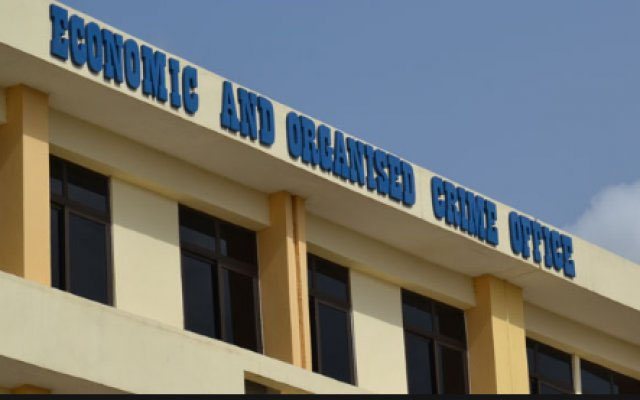The Economic and Organized Crime Office (EOCO) has recovered proceeds from financial fraud totalling GH¢99,165,369.29.
The amount represents recoveries and other proceeds of crimes such as default taxes, royalties, unearned salaries, recovery from defrauding by false pretences, stealing and money laundering.
The money retrieved between 2014 and March 2019 are resources which otherwise would have been lost to state institutions like Ghana Revenue Authority, National Petroleum Authority, BOST, Ghana Tourism Authority, MASLOC, Scholarship Secretariat, and the Controller and Accountant General’s Department.
Commissioner of Police (COP) Frank Adu-Poku (rtd), Executive Director of EOCO, speaking at the maiden stakeholder engagement on the activities of EOCO on the theme: “Combating Organized Crime In Ghana – A Shared Responsibility,” said a total of 1,855 cases involving tax fraud, defrauding by false pretences, money laundering, prohibited cyber activities, bank fraud, payroll fraud and human trafficking had been investigated by the organization.
Out of the number, 102 cases investigated by EOCO were prosecuted, with accused persons in four of the cases being discharged while 12 convictions were secured.
Touching on new initiatives of the organization in fighting organized crimes, the EOCO Executive Director said his office had reached out to other groups to collaborate in the fight against economic and organized crimes as well as educate the public through its awareness programmes on prohibited cyber activities.
“We admit that the office can do more given the needed request,” he said.
Attorney General and Minister for Justice, Gloria Afua Akuffo, in her keynote address, commended EOCO for the initiative, adding that it would bring transparency and build public trust in the organization.
She, however, cautioned the organization that inasmuch as it wants to be open it should be careful not to succumb to the pressure of the public to prosecute cases without the required evidence.
The event was sponsored by EU-funded Accountability, Rule of Law and Anti-Corruption programme in partnership with the Ghana Anti-Corruption Coalition (GACC) and Open Society Initiative for West Africa (OSIWA).
It was attended by representatives of the Ghana Integrity Initiative, Tranparency International, Institute of Economic Affairs, Star Ghana, CHRAJ, NCCA, PIAC, Office of the Special Prosecutor, Ghana Police Service, Financial Intelligence Centre, Bank of Ghana, Ghana Immigration Service and the Food and Drugs Authority.
By Jamila Akweley Okertchiri


